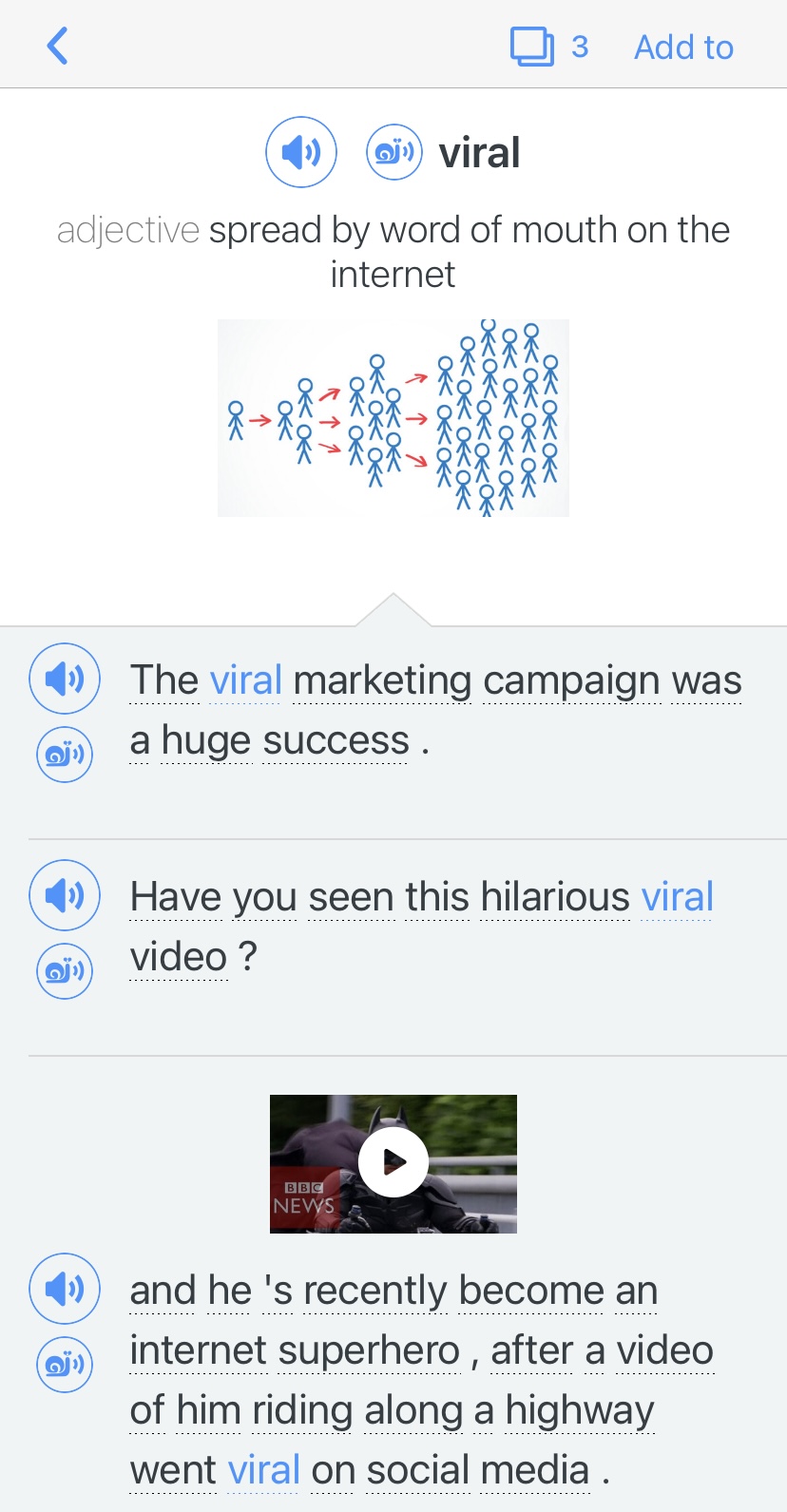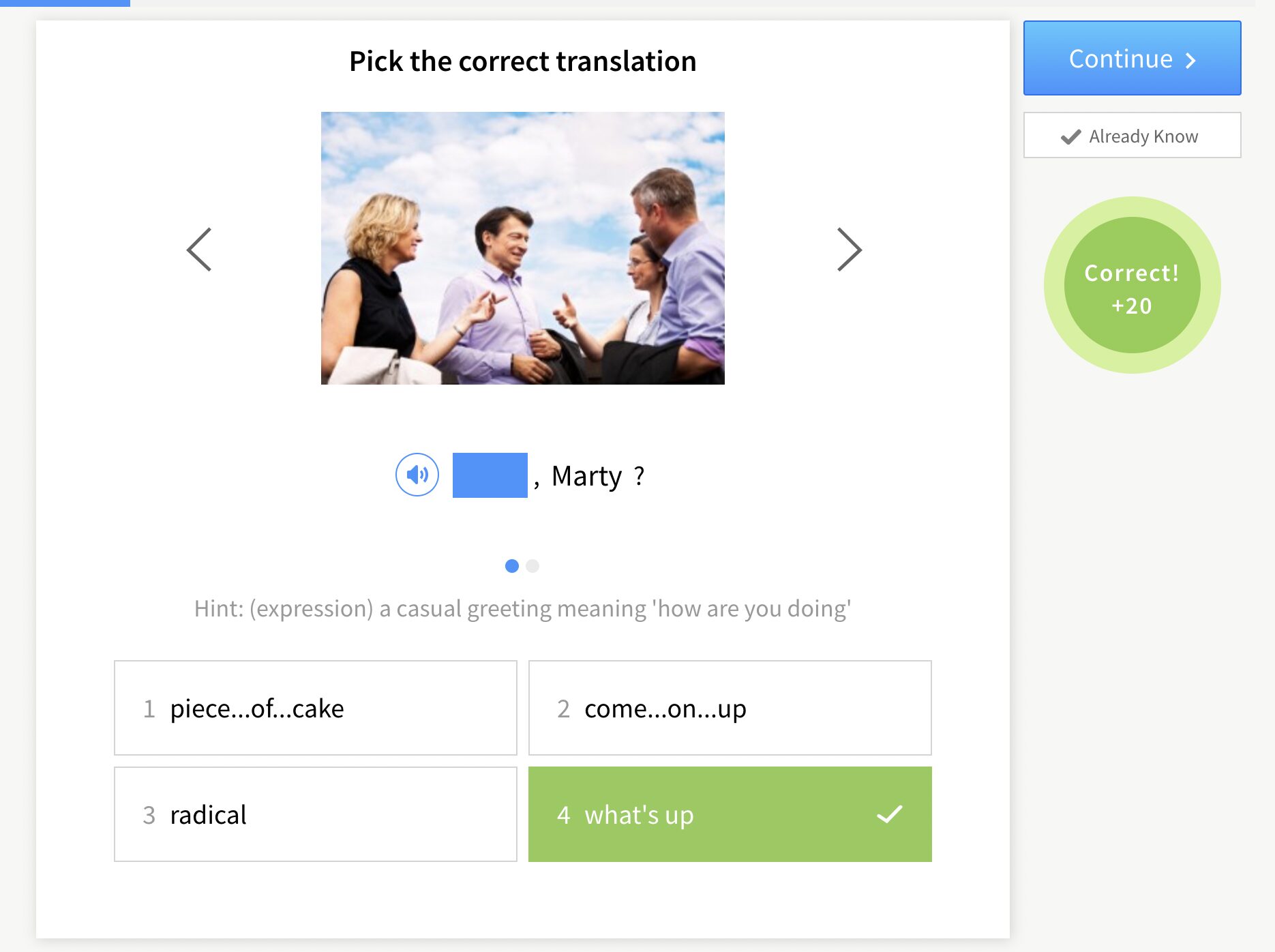Contents
- Common Business English Phrases and Idioms
- Phrases for Business Communication
- Expressions About Teamwork
- Expressions About Time Management
- Expressions About Money and Finances
- Phrases When Working on Business Projects
- How to Speak During Conference Calls
- How to Make an Excellent Presentation
- How to Make Negotiations
- How to Politely Suggest Ideas and Solutions
- How to Improve Business English Speaking Skills
- And One More Thing…
200+ Essential Business English Phrases and Idioms

If you want to succeed in the connected world of business, English is a very important language to know.
That’s why it’s a good idea to know at least some important business English phrases and idioms.
In this guide, you’ll learn many useful expressions and tips that you can use in any workplace that has English speakers.
We’ve already covered some common terms on our YouTube channel but you’ll find more in the post below:
Download: This blog post is available as a convenient and portable PDF that you can take anywhere. Click here to get a copy. (Download)
Common Business English Phrases and Idioms
1. Get a business off the ground
The business has been registered with its own name, the employees are hired and the product or service is ready to be offered to the public. In other words, the owner got his or her business off the ground.
- “After finding the right investors and securing enough capital (money to start with), we finally got our business off the ground and opened our first store in Toronto.”
2. From the ground up
Similar to the last one, if you build a business or project from zero or from the bottom, you’re starting from the ground up.
- “Have you read the news about the enterprising 12-year-old who’s building her business from the ground up?”
3. Long shot
Imagine you’re throwing a dart at a target from a long distance. What are the chances of it hitting the bullseye (the exact center of the target)?
A long shot is an idiom that’s used to describe something that has a very small chance of happening or succeeding.
- “Landing such a high-paying job is a long shot but I’m still going to give it a try.”
4. Bring to the table
To bring [something] to the table means to bring something of use or value (skills, experience, etc.) to a job or business activity (project, meeting, etc.).
- “We need someone on the team who can bring project management experience to the table.”
5. Learning the ropes
Imagine that you’re on a sailboat. The first thing you would learn is how to tie knots and work the sails. In other words, you would learn how all the ropes work!
To learn the ropes means to learn how to do your job or a particular task, especially if you have no previous experience. Because of this, it’s commonly used when referring to new employees in training.
If you instead say “to teach someone the ropes,” you can use it to describe a boss or more senior person helping a new employee understand their role and responsibilities.
- “Hey Paul, how’s your new job?”
“It’s great but I’ve only been there for two weeks so I’m still learning the ropes.” - “I’ve got a great manager who’s been teaching me the ropes, so I’m learning quickly!”
6. Learning curve
A learning curve is used to describe the progress needed to gain experience or learn a new skill set. A steep learning curve indicates the task may be difficult and therefore take more effort.
You can imagine a chart showing a curving line—if it goes up quickly, then it looks like a big hill or mountain.
- “She is welcome to join our team, but there will be a steep learning curve.”
7. Go the extra mile
To go the extra mile means to give more effort or do more than what’s expected of you.
- “Anyone would be glad to have Pam on their team. She’s a great team player and is always willing to go the extra mile.”
8. A win-win situation
You might hear that something is a win-win situation, or that something is win-win in both business and regular English. It describes a situation where everybody involved in the event or deal “wins.” Each person gains benefits from the outcome.
In business, it’s often used during negotiations or trades, where both parties receive something that they need from the other.
- “The deal is simple, we give them office space and they give us the new equipment that we need.”
“It sounds like a win-win situation to me!”
9. Overplay your hand
Be careful that you don’t overplay your hand. Being too confident about your work or showing off too much can lower your chance of success.
This saying comes from card games like poker, where players should always be careful not to show too many of their cards all at once.
- “My cousin overplayed his hand and ended up losing his job.”
10. Get down to business
Business meetings usually begin with some small talk while waiting for everyone to arrive. When it’s time to start seriously focusing on the actual work, it’s time to get down to business.
- “We’ve got plenty of topics to cover in today’s meeting so let’s get down to business.”
11. Get down to brass tacks
Again: let’s get on with the business at hand. You might hear this at the start of a business meeting, after some brief introductions or socializing.
One possible reason for saying “brass tacks” is because long ago, brass-metal tacks were used as the most basic, required things to hold up furniture.
- “Now that everyone’s here, let’s get down to brass tacks.”
12. A ballpark number / figure / estimate
This phrase, like many other business expressions, is related to sports. The ballpark is the sports ground or stadium where baseball is played.
Giving a ballpark figure means giving an estimate of the value, time or number of something. It’s used when the specific amount or number is not yet known or agreed upon but an estimate is required.
A ballpark is very large! So, this expression is specifically used for giving a very rough estimate or a large range in value.
- “To give you a ballpark figure, the new project will take between one and three months to complete.”
13. The bottom line
You may know that the last or bottom line on a financial statement is the most important. It shows the total profit or loss. So the phrase the bottom line is used to refer to the final outcome or the most important point to consider.
- “It’s true that we’re very short-handed, but the bottom line is we must still deliver the project on time.”
14. Smooth sailing
Think of the business as a sailboat. The skies are blue and the water is calm. When everything is going well and without any problems, we call it smooth sailing. The opposite situation can be called rough waters.
- “Once the company overcame the country’s bureaucracy, it was smooth sailing from then on.”
15. The big picture
The big picture means to look at the overall view of something, or the situation as a whole and not the smaller details.
- “I think his presentation was too long and detailed. He should’ve just given us the big picture.”
16. In a nutshell
Have you seen a nutshell? Think of how small it is and how little it can hold. So, in a nutshell means in summary, or in as few words as possible.
- “This book is about successful businesspeople and how they reached the top. In a nutshell, it’s about how to grow a successful business.”
17. Gray area
When you say that something is black and white, it means that there’s a very clear right side and wrong side.
The color gray is between black and white. When something is in a gray area, it means the situation isn’t certain. In a gray area there are no clear rules and it’s hard to say if it’s right or wrong.
- “You have many good points in your proposal but there’s one gray area we need to discuss.”
18. Red tape
Red tape refers to strong regulations and rules that you need to follow before you can get your work done. They can make things extra challenging for any worker.
- “Our project is stalled because we ran into some red tape.”
19. The wrong end of the stick
The wrong end of the stick refers to a total misunderstanding of a situation, plan or idea.
- “Jackie’s not in charge of this project… Mark is. Seems like you got the wrong end of the stick.”
20. Walking papers
If you’re given your walking papers, it means you have received a notice that you’re being fired or laid off from your job.
- “Did you hear? The boss just gave Brett his walking papers!”
21. Back to square one
Back to square one means to start over, or to go back to the beginning.
- “I wish I’d saved my spreadsheet before the server crashed. Now I have to go back to square one.”
22. Call it a day
When your work has been completed for the day, or when you decide to stop working on an activity, you can call it a day.
- “Now that we’ve completed the outline for the new project, let’s call it a day.”
Phrases for Business Communication
1. Word of mouth
Word of mouth refers to the spread of information verbally (by speaking). In regards to business, it usually refers to people telling other people about your business, product or service.
Note that this expression is commonly used to talk positively about something.
If someone has a good experience with your product, then they may tell their friend about it, and that friend might tell another friend and so on—and before long, everyone is talking about your product! This is known as word-of-mouth marketing.
- “Hi, if you don’t mind me asking, how did you find out about our shop?”
“I heard about it through word of mouth. Everybody kept telling me how great your products are!”
2. Touch base
This is another business phrase that comes from a sport. In baseball, the bases are where the batter runs to after striking the ball. In business English, to touch base means to briefly connect with or re-contact someone.
This contact is often short and just used to check in with somebody. For example, if you’re working with a colleague on a project, you can touch base with them about their progress or about a part of the project that you’re waiting for them to finish.
This expression is often used in emails.
- “Hi Sarah, I just wanted to touch base with you to see if we’re still scheduled to complete the first phase of the project by next Monday.”
3. On the same page
To be on the same page means to be in agreement or to hold the same views about something with others.
This is a very common English expression and is used in both everyday English and business English.
You might also hear this expression as a question: “Are we on the same page?” This is the same as asking, “Do we agree?”
- “Next month we need to cut spending by 20%. Are we all on the same page about this?”
4. Play hardball
Anyone who plays hardball is tough, unchanging and will not take “no” for an answer. Negotiating with these types can be a real challenge!
- “Joe’s the nicest guy I know, but he can play hardball when he needs to.”
5. Generate buzz
When a company uses marketing strategies and gets people talking about a product, possibly even before it’s released, it’s called to generate buzz.
When thousands of people talk about a company, they are buzzing and making noise like bees. When people talk, there’s a better chance that they will go check out what all the buzz is about.
- “Before its summer release, the movie was already generating a lot of buzz in the media.”
6. Meet up
To meet up means to come together to talk. It usually means having a short, informal meeting with a small group of people.
It’s often used with prepositions such as “in,” “at” and “with” to tell where, at what time or with whom you will meet up.
- “Since we have a few problems to discuss, let’s meet up in my office.”
7. Schedule a meeting
A schedule is a plan of times and events, but it can also be used as a verb. To schedule means to plan a date and time for a certain event.
To schedule a meeting means to choose a date, time and place to meet with another person or a group of people.
- “Let’s schedule a meeting for this Tuesday to discuss any problems.”
Expressions About Teamwork
1. There’s no “I” in team
There’s no “I” in team means that no one particular person takes all the credit for the achievements of a group effort. It’s kind of a cute phrase because the word “team” is truly not spelled using the letter “I.”
- “There’s no “I” in team; we failed at this project together.”
2. Team player
Lots of companies want to hire strong team players. They want someone who gets along well with others and supports a collaborative work environment.
- “I love doing projects with Kate because she’s such a great team player.”
3. Step up to the plate
Here’s another of those baseball-themed business English expressions! Imagine now a baseball player going up to the home plate to bat. It’s a very important moment that can be pretty scary.
If you step up to the plate, you take on a role or responsibility—usually a difficult one that others don’t want. This is a quality that companies look for in strong leaders.
- “After the sales numbers dropped last quarter, David really stepped up to the plate and turned things around for the company.”
4. Pass the buck
When you pass the buck, you make excuses and pass blame to someone else if things don’t go as planned. Someone who passes the buck probably isn’t a great team player, and they’re definitely not a good leader.
- “Josh lost us that client, but he tried to pass the buck to Samuel.”
5. Form a team
It means gathering a group of people to work on the project.
- “The first thing a project manager does is form a team of staff who are best for the project.”
6. Team up with
Similarly to the above, it means joining together to work as a team.
- “Sometimes on a big project, you may need to team up with other companies.”
7. Pitch in
To pitch in means to join in to help with a job or project.
- “Everyone will have to pitch in their ideas. We need each team member to share five ideas at the meeting on Monday.”
Expressions About Time Management
1. From day one
This means “since the beginning.” You often hear the phrase from day one used in the workplace to talk about something that has been true since the very first day a project or business began.
- “We need to hire more people immediately. We’ve been short-handed from day one.”
2. The eleventh hour
The eleventh hour is used to describe something that’s done or happens very close to the end or deadline. Think of 11 p.m. being just one hour away from 12 a.m., the start of the next day.
- “The project manager won’t be pleased about them changing the design at the eleventh hour.”
3. Need it yesterday
If your manager says, “I need it yesterday,” they don’t expect you to make a time machine. What your manager really means, “This should have been done sooner. I need it right now.”
- “Where is that report? I need it yesterday. I’m going to be late for the meeting now.”
4. ASAP
ASAP is an acronym for “as soon as possible.” Unsurprisingly, in business contexts, you’ll hear ASAP quite often—it’s as common in administrative vocabulary as in marketing and everywhere else!
- “Please tell Mr. Huang to call his client back ASAP.”
5. 24/7
When under pressure, many employees say they are working 24/7: 24 hours a day, seven days a week. This doesn’t mean they are actually working all day, every day, of course.
The term 24/7 is used to express hard work and long hours, usually to avoid finishing projects at the eleventh hour.
- “This marketing project is killing me. I’ve been working 24/7 and it just won’t end!”
6. To pencil it in
This expression is used to talk about setting a date for an upcoming event—like a meeting, presentation or lunch—that might not actually happen on the scheduled time or date.
Since you’re only using a pencil (and not something more permanent like a pen), you’re leaving open the possibility of canceling or rescheduling the event.
- “Hi Maria, can we meet next Tuesday at 1 p.m. to chat about the upcoming campaign?”
“I’m not too sure about my schedule. Let’s pencil it in and see closer to the date, ok?”
7. Start from scratch
This term is used when you need to start something new from nothing. It can also be used when you redo something from the beginning.
- “Since we will be starting from scratch on this project, we will make the plan as we go along.”
8. Define the phases
This expression means to break down the project into smaller parts, or phases.
A phase is one part in a series of actions or events. For example, in a library project, the design phase comes before the building phase.
- “We must wait for the project team to define the phases before we can start work.”
9. Set deadlines
A deadline is a date or time when a completed job is due. So, to set a deadline means to mark the time when something should be done.
- “We have set deadlines for each phase except the design phase. Does anyone know how long the design will take?”
10. Meet the deadline
To meet a deadline means that you finish the task by the deadline. For example, say you need to send in your job application by Friday at 3:00.
To meet the deadline, you send in your job application on Friday at noon. If you send in your job application on Friday at 4:00, you did not meet the deadline (because you were too late).
- “We may have to work longer hours to meet the deadline.”
11. Behind schedule
It means that something is overdue or will be done later than planned.
If your project was due on Monday, but it’s now Thursday, you’re behind schedule. The project was supposed to be finished by now, but you’re still working on it.
- “When the project manager hears that the project is behind schedule, she will want to know the reason why.”
12. Ahead of schedule
To be completed earlier than planned.
Imagine that today is Monday and your project is due on Friday. If you finish it tomorrow, on Tuesday, then you’ve finished it early and are ahead of schedule.
- “The project manager is happy that the project is ahead of schedule and thanked the team for their hard work.”
13. According to schedule
It means that everything is going as planned, with no delays or time-wasting.
- “If the project goes according to schedule, you can expect a nice bonus this year.”
14. On schedule
Related to the above, this phrase means that you’re finishing each task on time and not expecting any delays.
- “If we can solve all these problems quickly, we will still be on schedule to finish the project by the end of this month.”
15. Target date
It means to have a date to complete something by that time. It’s similar to a deadline, but it’s not as strict.
- “If we keep missing the target dates, this project will not be completed on time.”
Expressions About Money and Finances
1. On a shoestring
When you do something on a shoestring, you’re working on a tight budget or with very little money.
- “It’s going to be a challenge doing such a big project on a shoestring but we’ll try our best.”
2. Sleeping partner
This is a person closely connected to the company who may even be financing it, but there is no—I repeat, no—romance going on.
A sleeping partner gets this term because they’re not actively helping to manage the company, though they are invested in it.
Another term for this is silent partner.
- “Oh, he doesn’t really have any say in the way we work. He’s just a sleeping partner.”
3. Cash cow
Cash cow is a term for a product or investment that provides a steady (or the most) income, usually an amount that is much more than the cost of startup.
For example, the Coca-Cola company sells a lot of products from juices to teas to energy drinks, but the original Coke is likely their cash cow.
- “These new products are just additional profit. The cash cow is our line of cameras.”
4. Deep pockets
Someone with deep pockets has a lot of money to spare. Big pockets have a lot of space for carrying money!
For a company, this can be help in the form of a wealthy investor or group of investors.
- “Let’s ask Mrs. Henderson for help. She has deep pockets.”
5. Go belly up
If a project or business goes belly up, it has failed to generate profit. This could result in bankruptcy or the company going into receivership. You can guess the meaning if you understand what it means when an animal (like a fish) has its stomach facing up.
- “That new restaurant closed down already because they went belly up.”
6. Take a bath
Taking a bath can be a refreshing, relaxing thing. But not in the business world.
If you take a bath, it means you suffered a heavy financial loss.
- “The landlord is taking a bath on his property. He has no tenants!”
7. Tighten your belt
Just swap the word “belt” for “budget,” and this will be easy to remember. If you tighten your belt, you’re cutting extra costs and trying to keep your budget lean (small; skinny).
If your company took a bath and losses are severe, it could lead to cuts being made. The company and employees will have to tighten their belts, or reduce how much money is spent.
- “We’re going to have to tighten our belts. Unfortunately, our sales last month weren’t as nearly as high as usual.”
8. A slice of the pie
When profits soar (go up), you can guarantee employees will be looking for a share of the wealth, or a slice of the pie. This business English expression simply refers to a portion of profits or benefits.
You can also say a slice of the cake.
- “She wants a bigger slice of the pie because she knows she’s the best employee.”
9. The lion’s share
The lion’s share is the “bulk” or “majority” of something.
Many well-run businesses reward hard work and it’s only right that those employees who put in the most time, energy and effort should receive the lion’s share, or the bulk of the profits.
- “Paul has been here for 25 years and definitely gets the lion’s share around here.”
10. Golden handcuffs
These aren’t police tools. Golden handcuffs are financial incentives (bait, encouragement) given to employees in order to persuade them not to leave a company.
- “Unlocking your golden handcuffs will give you much greater peace of mind.”
11. Golden handshake
Many executives have golden handshake clauses in their contracts. A golden handshake is a financial package that the executive will receive if they lose their job.
- “Mr. Smith’s golden handshake served him well. He got $100,000 when he left the company last year.”
12. Kickbacks
The corporate world is tough. It may be tempting to beat out the competition by giving kickbacks, or payments for special favors (like winning a contract).
But kickbacks are often unethical (dishonest) or even illegal—especially if they could be classified as bribes!
- “The company is facing a government investigation because they think the executives are getting illegal kickbacks.”
13. Create a budget
To make a plan on the amount of money to spend and how to spend it.
- “We need to create a budget that includes the travel expenses of the project team.”
14. Stay on budget
To keep within the amount of money you plan to use, and refuse to spend more.
Here is yet another phrase where the noun, budget, can’t be used in its plural form (budgets).
For example:
- “The project manager has reminded us that to stay on budget, we must remember to keep the costs as low as possible.”
15. Increase the budget
To add more money to the amount you planned to spend.
The opposite of this phrase is to decrease the budget, which means to take away from the amount of money that you planned to spend.
- “Management has agreed to increase the budget to cover the cost of testing the new car.”
Phrases When Working on Business Projects
1. Back to the drawing board
To go back to the drawing board means to start over, and look at a failed idea in a new way. You can also use this phrase when you need to rethink a decision.
This expression is commonly used to motivate a team of employees to rework a failure. You can imagine a group of employees removing a failed design from a whiteboard and drawing a new idea. They are starting again by literally going back to the drawing board!
- “We didn’t sell any units of our new product.”
“OK, let’s go back to the drawing board and design a new one.”
2. To brainstorm an idea
To brainstorm an idea is to openly discuss an idea with your colleagues in a relaxed and free environment.
This is commonly called a brainstorming session or simply brainstorming. The purpose of brainstorming in business is to explore ideas in an open-minded and non-judgmental environment.
- “Hi everyone, in this meeting we’re going to brainstorm ideas for this year’s new product. Please feel free to share any ideas you have.”
3. Give the green light
When you’re driving and the traffic light turns from red to green, what do you do? You move ahead, because green means go.
To give the green light term means to give the signal to begin. You can go ahead and now begin the project.
- “We can’t start the project until management gives the green light.”
4. Kick off
To kick off means to officially start the project. This phrase is also used in sports.
In football and soccer, the game will kick off (begin) when a player kicks the ball to start play.
- “As soon as we kick off the project, we will be very busy.”
5. To think outside the box
To think outside the box means to think in a creative way that is not typical or traditional. You can use this expression in business when you’re talking about ideas.
If someone tells you to think outside the box, then they’re telling you to think of a creative solution or idea that may be unexpected or not obvious.
You can imagine the “box” as a traditional and obvious solution and outside the box as a more creative or abstract solution.
- “For our new advertising campaign, we really had to think outside of the box to come up with something that hadn’t been done before.”
6. Fifty-fifty
Fifty-fifty simply means dividing something into equal parts so that both parties get 50%.
- “Since I’m as busy as you are, let’s split the work for this project fifty-fifty.”
7. Get the ball rolling
This phrase means to start a new project or business activity. You can imagine the sports of bowling or soccer for this expression.
It can also be used to describe a small action that leads to the beginning of something. This usually starts with one person. For example, a person can get the ball rolling by doing a small task that will eventually become part of a bigger project.
- “For our meeting today, Allie will get the ball rolling by talking about our budget goals for this quarter.”
8. Hit the ground running
To hit the ground running is to begin a task or project with lots of energy and enthusiasm. The expression is commonly used when talking about a new project or idea that requires immediate, fast and lively action.
It’s also used when talking about taking advantage of an opportunity.
- “We really need to hit the ground running with this idea and get our product on the shelves before someone else does.”
10. Corner the market
When a company becomes more successful than their competitors in developing a product or service, we say they have cornered the market. It’s another way of saying they control the market.
Think of this business as a boxer in the ring. It’s got its opponent in the corner, who can’t move out of the way. Its opponent can only put their gloves up in defense.
- “In only a short time, the company has been able to corner the high-definition television market.”
11. Behind the scenes
The behind the scenes of a movie or show shows you the people, tools and directions that are used to make the set.
In business, this phrase is used to describe something, usually work, that’s done or that happens away from public view.
- “Organizing a roadshow may look easy, but do you have any idea how much hard work we’ve put in behind the scenes?”
12. Knuckle down
Your boss doesn’t want you to chit-chat and waste time! They want you to knuckle down, or concentrate on your work and get it done.
- “All right, quit joking around. We need to knuckle down and finish this report.”
13. Run around in circles
To run around in circles means to keep doing something without achieving any real results. In other words, you’re doing a lot of unnecessary work but not getting anywhere.
- “The deadline is coming up, but we’ve been running around in circles because the client keeps changing their mind about the design.”
14. Get up to speed
Did you take some time off from work? Or, did you miss the last meeting?
Either way, you’ll have to get up to speed with everything that you need to know. This expression means to catch up on information, changes or updates that you have missed.
You can also say that the person who is teaching you the missing information is bringing you up to speed.
- “It didn’t take me long to get up to speed with the new laws as my co-worker explained them to me perfectly.”
15. To keep an eye on the ball
Imagine you have stepped into the stadium with the baseball bat in your hand. Thousands of people are cheering your name but, in your head, you’re thinking about one thing: You need to keep your eye on the ball.
To keep an eye on the ball means to focus on your task or goal closely. It can also be used to encourage someone to pay attention or to watch out.
- “When it comes to business negotiations, you really need to keep an eye on the ball.”
16. Hands are tied
If red tape causes a delay in your project, you’ll have to tell your manager that your hands are tied. There’s just nothing you can do about the unfortunate situation.
- “Sorry, we have to extend the deadline. The client hasn’t returned my call yet and my hands are tied.”
17. Go down the drain
A drain is a hole where liquids and waste are sent away. For example, there’s a drain in your sink, shower and toilet.
To go down the drain means that your effort, work or money is wasted or lost.
- “If this sales campaign doesn’t succeed, all our hard work will go down the drain.”
18. By the book
Doing something by the book means doing it strictly according to the rules, policies or the law.
- “I don’t think John will listen to your suggestion. He insists on doing everything by the book.”
19. Above board
You want to do things above board (the ethical and honest way) in business.
- “We only do things above board here. If you want a job, you need to apply like everyone else.”
20. To cut corners
If you’re cutting corners, then you’re not giving your project everything that you should. It means skipping some steps to reach an outcome as quickly or as cheaply as possible.
It’s used in a negative way, because something that’s done by cutting corners might be missing an important part, use cheap materials or not be as good quality overall.
- “The company cut corners when making their camera, so it’s very cheap but it stops working after a few months of use.”
21. Put a plan into action
This phrase is used when you want to say that you’re starting to use a plan or idea.
- “If we put this plan into action, we may need more time and more people.”
22. Plan ahead
To think carefully before taking action.
- “The project manager’s advice is to plan ahead so that the project will go smoothly.”
23. Make a plan
To create a way to do something.
- “How should we advertise this new product? Let’s make a plan now.”
24. Stick to the plan
To refuse to change from what you have decided, no matter what happens.
For example, you and your friend have decided to go to a movie Friday night. On Friday afternoon, your friend calls to say there is a sale at your favorite store.
She asks if you want to go shopping instead. You decide to stick to the plan, meaning that you will still go watch the movie.
- “Changing the design now will take too much time. Let’s just stick to the plan.”
25. Review the plan
To inspect or look carefully again at the plan.
- “If we want to include all these new ideas, we will need to review the plan.”
26. Tasked with
The verb to task means to give a task (small job) to someone. However, this verb is almost always used in the passive form with the preposition “with,” which looks like this: have/has been tasked with.
In that form, the whole phase means to be given a task.
For example, if I have been tasked with calling 20 clients today, that means someone else gave me the job of calling 20 clients.
- “Your team has been tasked with finding out why there are so many customer complaints.”
27. Outsource a task
The verb to outsource means to send out the company’s work to someone outside the company.
For example, if you own a small restaurant, you may cook the food yourself but outsource the desserts to be made by a local baker.
- “Since the project team is busy, it might be a good idea to outsource some tasks to another company.”
28. Target to complete
The phrase is used when you plan to finish something.
- “We must target to complete phase 1 before the year-end holidays when most people will be on vacation.”
29. Achieve the target
To succeed in reaching a goal.
- “The project team can expect a free lunch if they achieve the target this month.”
29. Wrap up the project
To wrap it up is a common English expression that means to finish up something. So to wrap up the project means to finish the project.
- “Okay, everyone, let’s check all the paperwork and clean up the project room, then we’ll be ready to wrap up the project.”
30. Sign off the project
To formally approve and accept the project as finished.
- “All that remains now is to sign off the project and take the whole project team out to celebrate.”
How to Speak During Conference Calls
In the workplace, meetings are all about listening and letting people know that you understand what is being talked about.
It’s a good idea in business meetings to speak as clearly as possible and to be firm (strong) but not rude or pushy.
It can be easy to seem pushy if you do not add the all-important “please” and “thank you” to your phrases. These polite terms go a long way in business English.
Beginning a conference call
You will either hear these phrases or need to use them yourself while talking to people on a conference call.
- “Let’s give everyone a few more minutes to join.”
- “Are we all on?”
- “Can I ask that we all state our names, please?”
- “I’m here. It’s [your name] in [your city].”
- “Can everybody hear me?”
These are useful phrases to check if everyone is present and has joined the conversation. When asked, just respond “yes” and give your name and position, or job at the company.
If you’re using a video conference program, like Google Hangouts or Zoom, it may not be needed to give your name since others can see your information through your video icon. However, it’s still good manners to say hello to everyone when you join.
You can use these phrases to get started:
It’s also common to hear a bit of small talk before the actual meeting begins. Some phrases you might use or hear spoken are:
- “How’s everyone doing today?”
- “How’s the weather where you are?”
- “Did everyone have a good weekend?”
Note that you may not receive actual answers to these questions. They are mostly rhetorical questions (questions that you do not have to actually answer). Most likely, you will get a few nods or a simple reply like “I’m doing fine, thanks.” Despite this, it’s polite to ask and can help fill the silence before the actual meeting begins.
When it’s time for the meeting to start, the person who is leading the meeting will signal that everybody should quiet down and listen up. Listen for these phrases:
- “Okay, everyone, let’s get started.”
- “It looks like we’re all here.”
- “Thank you all for being here. Let’s talk about today’s objective.”
Asking for clarification during a conference call
When talking on a conference call, there is a chance that your internet connection will be poor, or that the quality of the call will be bad. In these cases, you might miss out on something that someone said.
This happens to native speakers, as well! You should always ask for clarification when you’re not sure, or else you may become more confused or misunderstand completely. Here are some phrases that you can use to make sure you do not miss anything important:
- “Could you speak more slowly, please?”
- “Could you repeat that, please?”
- “Would you mind spelling that for me, please?”
- “Could you explain that in another way, please?”
- “I’m afraid I didn’t get that.”
- “I’m sorry, but could you speak up a little?”
- “I didn’t quite hear that, sorry. Can you say that again?”
- “I didn’t catch that last bit. Can you say it again, please?”
Taking a break from the conversation
You might need to step away from a conference call. Make sure that you’re polite and clear when you do it.
Try these phrases if you need a break:
- “[Your name] speaking. I need to leave for 10 minutes. Is that okay with everyone?”
- “I need a moment. I’ll be back in about 10 minutes.”
- “I’m sorry to interrupt, but I need to step away from the call for a few minutes.”
If you’re on an online call, you can leave a message in the chat to avoid interrupting the speaker.
When you return, let everybody know you’re back by saying:
- “[Your name] here. I’m back on the line again.”
- “This is [Your name], I’m back. Thanks for your patience / Thank you for waiting.”
Being an active participant in meetings
As the meeting goes on, you’ll want to be an active participant. That means speaking up if you have any questions, as well as giving your feedback and thoughts when others speak.
It’s okay if you accidentally speak over somebody or interrupt them. It happens to everyone. You can use these phrases if this happens:
Sometimes, you might want to interrupt to ask a question. In this case, you can politely signal that you have a question:
- “Am I to understand that…”
- “Sorry, but just to clarify…”
- “So, what we’re saying is…”
- “Sorry to interrupt, but…”
You can also participate in the conversation by agreeing and disagreeing with what others are saying.
Here are some useful phrases for agreeing:
- “That’s an excellent point , [person’s name], I agree with you on that.”
- “Okay, I think we’re all on the same page here…”
- “Yes, I see what you’re saying…”
- “I couldn’t agree more.”
You will not always agree with everyone else. Here are some phrases to disagree politely but firmly:
- “I’m sorry but I think you may have that slightly wrong…”
- “From my perspective, it’s a little different. Let me explain.”
- “I see your point, but…”
- “I’m not sure I agree with that.”
Planning for future meetings
When it’s time to end the meeting, you may want to set up the next meeting. Whether you’re talking with your co-workers, business partners or clients, here are some phrases to help you schedule future meetings:
- “I’d like to set up a meeting with you at your earliest convenience. When are you free?”
- “Are you free to talk again next week?”
- “When are you available for another meeting?”
- “How does 2:30 p.m. Thursday sound?”
- “Does Thursday at 2:30 p.m. suit you?”
After the person has agreed to the time, you should confirm one last time just to make sure the other person has really heard.
If you’re working with a global team where there could be confusion as to the time, add the “a.m.” or “p.m.” and the time zone if necessary, just to be sure you have been understood:
- “Great, let’s meet again on Thursday at 2:30 p.m., Eastern Standard Time then.”
- “Okay, I look forward to seeing you at 2:30 in the afternoon on Thursday.”
- “Thursday at 2:30 p.m., EST. Looking forward to it, see you then.”
- “See you on Thursday at 2:30 p.m. Bye for now.”
Check out this post for more phrases you’ll need for your next business meeting:
200+ Practical Business Meeting Phrases | FluentU English Blog
To run a meeting effectively, you need a stash of business meeting phrases in English. Check out this post to find a list of over 200 business meeting phrases to use in…
Extra Tips When on a Conference Call
Besides using the right language, there are a few other things you can do to boost your professional look.
- Learn the software you will be using beforehand. Your conference call will go a lot smoother with just a little preparation before you start. Get on the software and learn where all the key features are. Try a test call to see how things go.
- Talk with a friend at work and look at the agenda together. The agenda is a document that will list the topics of the upcoming meeting. You will be able to ask your work friend about the words you do not understand and practice using them.
- Use the mute button if you’re not speaking while on an audio conference call. It’s more polite and business-like, and can give you time to really listen and think about what people are saying. Plus, it will make sure that any background noise from your end will not distract the meeting.
- Look interested and nod your head when appropriate. It can be a bit strange at first, but try to be as engaged (involved) as possible. Act natural and friendly.
- Try out idioms. Some native speakers may use complicated idioms during conference calls. However, remember that a plain-spoken approach with fewer idioms will get your point across more clearly during a business call.
How to Make an Excellent Presentation
At some point, you may be called on to give a presentation. Business presentations are known for being dull (boring)—not many people enjoy sitting through many PowerPoint slides… do you?
Keep your presentation short, speak clearly and try to waste as little time as possible.
If you’re on a video call, remember that body language is still an important part of your presentation. As you talk, try to look up from your notes as often as possible to engage your audience. If you make a mistake, just stay calm and correct yourself.
Starting your presentation
Begin by introducing yourself. Even though this is a business presentation, it’s okay to be friendly and informal here, to get everyone to feel comfortable and interested in what you have to say. Here are some examples:
- “Hi everybody, my name is [your name] and I’m [your role in the company].”
- “Good morning / afternoon / evening ladies and gentlemen, I’m [your name].”
- “Hi everyone, I’m [your name]. I’ll keep this brief.”
- “Thanks for having me here today. I’m [your name].”
Note: remember to use the contraction “I’m” instead of “I am” to sound more friendly and less formal.
Introducing the topic of your presentation
After you have introduced yourself, it’s time to introduce your topic of presentation. Try to say the topic of your presentation in a sentence or two.
This is a good time to practice your “elevator pitch.” Pretend that you and the people you’re speaking to are on an elevator going from the 10th floor to the 1st. You only have about a minute to express your point, and do it in such a way that everyone will understand.
You can start your topic introduction with these phrases:
- “Today, I’m here to talk to you about…”
- “I’d like to outline our plans for…”
- “In this presentation, I’ll discuss…”
After you introduce the topic, you can give the listeners a “map” of your presentation, to help them know what to expect.
- “This presentation will take about 20 minutes.”
- “First, I’ll start with some general information about…”
- “First, I’ll talk about…”
- “Then, I’ll look at…”
- “Then, we’ll go over…”
- “We’ll conclude with some information on…”
- “Finally, we’ll talk about how to move forward with…”
- “I’ll be happy to answer any questions you may have at the end of this presentation.”
- “To keep things moving, please hold your questions until the end of the presentation.”
Ending your presentation
You have made it to the end of your presentation! Now comes the easy part: ending it. Once you have given your presentation and are ready to finish, use these phrases:
- “Well, that brings me to the end of my presentation.”
- “Thanks so much for listening to my presentation.”
- “That’s it from me.”
- “It was a real pleasure being here today.”
- “I’ll be taking questions for the next 10 minutes.”
- “That concludes my presentation. Does anyone have any questions?”
How to Make Negotiations
When you’re taking part in a negotiation, you might or might not get what you want at first. Here are some phrases that will work for each situation. Remember: Be polite but be firm.
Sometimes in a negotiation, you know you’re not going to win. When you go into a negotiation, you should know what your “deal-breaker” is. A deal-breaker is something that will not be accepted no matter what.
For example, the lowest price you’re willing to accept for a product is $100 per piece. You will walk away if somebody demands a lower price. Perhaps you’re protecting your “bottom line.”
Try these phrases to get the negotiation “back on track” if it seems you’re “not on the same page.” In other words, get the negotiation going in your favor if you’re not in agreement:
- “I understand that we can’t do that, but can we discuss some other alternatives?”
- “I hear what you’re saying, but our bottom line is very clear on this one.”
- “This is a deal-breaker for us, we can’t budge.” (Budge means move, change or give up.)
- “Maybe we can find a compromise that works for both of us.”
How to Politely Suggest Ideas and Solutions
One of the most powerful phrases you can use during a brainstorming session is one that includes a modal verb. These are special verbs that express ability (“could”), possibility (“might” or “should”) or request (“would”).
They are small but powerful words to use for softening the effect of your tone in a discussion. They make you sound more polite and agreeable.
Making Suggestions
Beginning a sentence with the word “Let’s…” will make you sound positive about working together toward a common goal, for example:
Phrasing your suggestion in the form of a question is a great way to set a softer tone:
- “How about holding the launch at the convention center?”
- “What if we consider another venue for the launch?”
Beginning a sentence with “I think” or “Maybe,” even if you’re very certain about something, is a good practice:
Rejecting Suggestions
Saying “no” to an idea or suggestion comes with a risk of offending someone or hurting their feelings. So we should approach this very carefully.
Starting a sentence on a positive note, even when we’re about to reject someone’s suggestion, is one great way to make it less upsetting:
- “That’s a good idea but we may not have the budget for it.”
- “Your suggestion sounds good but we’ll need to check the rental rates.”
- “I can see some problems with that.”
- “Let me think about this.”
- “I’m not too keen on using the concourse area for the product launch.”
- “I’m not too keen on the idea of the convention center.”
- “I’m not really convinced the concourse is a good venue.”
- “I’m not really sure we have the budget.”
- “I don’t think this would work.”
- “I don’t think this would be the best venue for the launch.”
Accepting suggestions
Accepting or agreeing with someone’s suggestion is easy. However, instead of a direct “Yes” or “I agree,” you may want to communicate different degrees (levels) of agreement.
If you’re very sure, you might say:
If you’re not very sure, you might use these phrases:
- “This looks like it could work.”
- “That might be worth trying.”
- “It might work.”
- “Maybe. I’m not sure.”
Evaluating suggestions involves reviewing ideas and solutions, and selecting the best one to use. This usually involves discussing each idea or solution in detail and asking questions to generate feedback. Here are some good questions to ask during the evaluation:
If an idea or suggestion sounds good but you need more time to think it through, you could use these phrases:
- “Let’s look at this again.”
- “I think this needs a lot more thought.”
- “This idea has potential (possibilities), but it’s not quite there yet.”
- “Let’s keep this in mind and come back to it later.”
If you only agree partially (partly) with a suggestion, or accept only certain aspects (parts) of an idea, you could use these phrases to lead into saying which parts you agree and disagree with:
Now you’re all set to shine at your next brainstorming session.
How to Improve Business English Speaking Skills
How can you work on your speaking skills and learn new business English phrases at the same time?
The key is to always keep practicing—and to find the perfect resources for your business purposes!
- Read, read, read! The more you read, the more new words and phrases you will learn. Here are some suggestions:
- Forbes and The Economist business sections are for more advanced business English learners. The articles are written for and by native speakers, so the language is very current and can sometimes be complex but well-written.
- The Learning Network by the New York Times is specifically made for English learners. Some of the material is targeted toward teenage learners, but the lessons use real New York Times articles and are a perfect way to expand your vocabulary.
- Learning English by the BBC is another great source of English-learning material for a wide range of levels. It has grammar lessons, podcasts, vocabulary lists and news articles which can help you slowly make your way to the main BBC Business news website.
- Focus on common phrases with multiple applications. For example, short phrases such as “I’m sorry” can be used in a number of different business scenarios. For example: “I’m sorry I’m late to the meeting,” “I’m sorry, I didn’t quite catch that,” “I’m sorry, but I disagree” and so on.
- Listen to podcasts. There are many podcasts made for business English learners. This series of podcasts from the British Council, for example, will help you to improve your English in your workplace. They are suitable (appropriate) for learners at an intermediate or advanced level.
- Listen to English speakers. Pay attention to every native speaker you encounter. When answering a question they ask you, listen carefully to their choice of words and try to use those same words in your answer.
- Practice with interviews. Having pretend interviews or listening to them can be especially good for practicing professional business English.
- Watch authentic English videos. You don’t need to have actual English-speaking individuals next to you to benefit from hearing native speech. Head online and watch videos made by English speakers for English speakers. These will be filled with the kind of language you would want to use in real-life.
If learning from authentic English content sounds a bit challenging, FluentU can make native videos easier to learn from.
FluentU takes authentic videos—like music videos, movie trailers, news and inspiring talks—and turns them into personalized language learning lessons.
You can try FluentU for free for 2 weeks. Check out the website or download the iOS app or Android app.
P.S. Click here to take advantage of our current sale! (Expires at the end of this month.)

English is the universal language of business all over the world. The better your English gets, the more in demand you will be as an employee. Learn the business English phrases and expressions in this post to help you get started.
Keep listening and keep talking!
Download: This blog post is available as a convenient and portable PDF that you can take anywhere. Click here to get a copy. (Download)
And One More Thing…
If you’re like me and prefer learning English on your own time, from the comfort of your smart device, I’ve got something you’ll love.
With FluentU’s Chrome Extension, you can turn any YouTube or Netflix video with subtitles into an interactive language lesson. That means you can learn from real-world content, just as native English speakers actually speak.
You can even import your favorite YouTube videos into your FluentU account. If you’re not sure where to start, check out our curated library of videos that are handpicked for beginners and intermediate learners, as you can see here:
FluentU brings native English videos within reach. With interactive captions, you can hover over any word to see an image, definition, and pronunciation.
Just click on the word to see other example sentences and videos where the word is used in different contexts. Plus, you can add it to your flashcards! For example, if I tap on the word "viral," this is what pops up:
Want to make sure you really remember what you've learned? We’ve got you covered. Practice and reinforce the vocab from each video with learn mode. Swipe to see more examples of the word you’re learning, and play mini-games with our dynamic flashcards.
The best part? FluentU tracks everything you’re learning and uses that to create a personalized experience just for you. You’ll get extra practice with tricky words and even be reminded when it’s time to review—so nothing slips through the cracks.
Start using the FluentU website on your computer or tablet or, better yet, download our from the App Store or Google Play.
Click here to take advantage of our current sale! (Expires at the end of this month.)






















